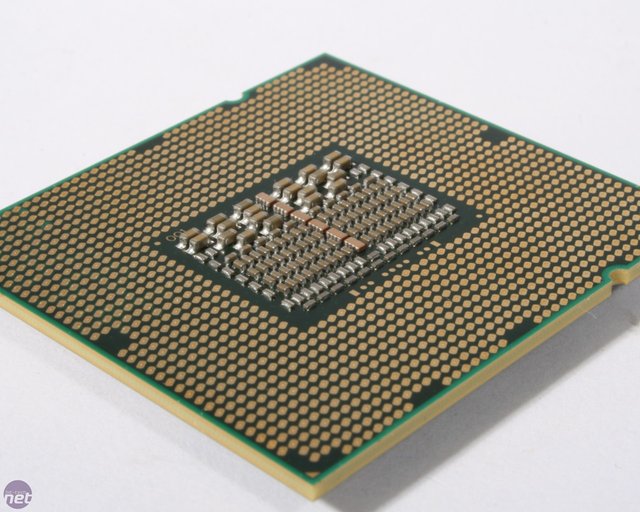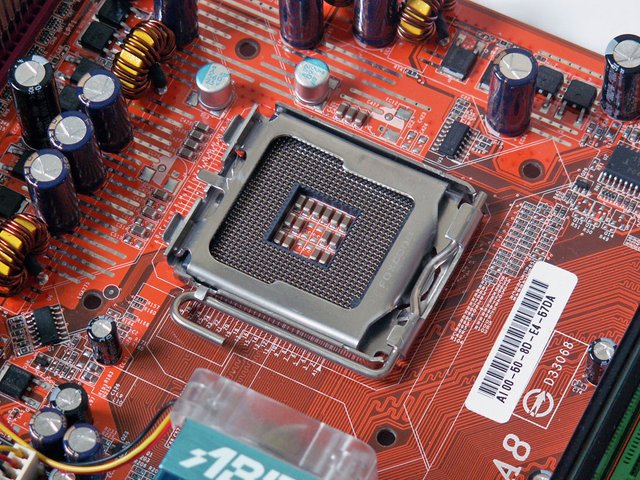Simplifying Computers - What is a CPU?
If you are up to date on your technology news, Intel has recently announced their newest product, the Intel Core i9, which features 18-core, 36-threat micro-processing capabilities.
But what is a CPU? What is an Intel Core processor? For that, we shall go back to the basics.
DISCLAIMER: I am not going to be explaining everything that a CPU is capable of or has as a feature. This is to provide the core of its functionalities! Thank you :)
The Basics of the CPU
CPU stands for Central Processing Unit.
Definition: A central processing unit executes a sequence of instructions called a program.
CPU's rely on input and output devices to help humans understand. Examples of input devices include your keyboard, mouse, and gaming controller; output devices are your monitors and speakers.

How a CPU Works
The way a CPU actually processes this information (aka the stuff that we humans don't really fully comprehend!) is with four main steps:
1) Fetch - this is where it gets the instructions from a program. Each program has millions upon millions of instructions, and each instruction has 1 specific address. Hopefully We all have home addresses, or building addresses we work at, and each instruction in a program is not exempt! (Bonus: A program counter is used to keep track of where the CPU is in a program's set of instructions).
2) Decode - each set of instructions has its own language! Just like real languages we have in real life - English, French, Spanish. There is absolutely no way (assuming you know one language) to understand Spanish if you were only English speaking.
Now this compiler language has two purposes. Think of it as a translator and middleman when I explain its dual purpose. Its first purpose is to decode the set of instructions so that it can understand it. The second purpose is to translate the set of instructions into a language that the CPU understands, called Assembly Language. This is extremely important within the process because it allows the CPU to quickly use those instructions into something that the human requested from the input device!
3) Execute - now that the CPU understands what they have to do (based on the set of instructions from the program), they now can make decisions on what to do it. There are three main executable activities that the CPU can do:
a) The CPU is very smart, so much so that it has its own logic (way of thinking). It is called Arithmetic Logic Unit (ALU). This ALU is able to do PatrickJMT/Khan Academy/IBM Watson type calculations and functions to the raw, unprocessed instructions of the program! Crazy.
b) It can move data between memory slots/locations.
c) The CPU is very resourceful. It can go back to other addresses in the program if the CPU decides it needs to! Simple as that.
4) Writeback - Once the CPU has done its job fetching the instructions, decoding it into its own Assembly Language, and executed it accordingly, it is now ready for the human's eyes, usually through a screen. This is usually done by having a specific address for the output.
OK, now that you know a CPU's 4 main functions, let's conclude with an extremely basic example:
1) Human wants to add 10 + 12 via Calculator app on PC. Set of instructions from the Calculator program are sent to the CPU.
2) The program's instructions are decoded by the compiler language (not really important), and is then translated into the Assembly language for the CPU's use.
3) The CPU will use its logic unit to execute the supposed output of 22 to the human.
4) CPU specifies an address for the output 22 and it is then shown to the human via screen.
Now, this may seem tedious; but, a CPU nowadays can be extremely powerful with other capabilities.
SIDE NOTE: Upvote and comment below to tell me if you are liking this and I will do a part 2 regarding modernized CPU's, and the use of hyper-threading, and multi-cores, and more :)
What is CPU Clock Speed?

The last thing I would like to say about the CPU is that a clock is extremely important in its function. A CPU must ensure that the logic units within the processor are all synchronized, as they continue to interact with the program's instructions.
A clock represents time in cycles. One cycle is when a signal goes from low to high, and back. One cycle means one instruction has successfully been dealt with. Clock speed is thus CPU clock cycles per second. This is why you read 3.0 GHz, 2.8 GHz on computer features online or on catalogs! 3.0 GHz is equivalent to approximately 3 BILLION times a second.
Where is the CPU in the Computer?
Now, a CPU is located specifically on a CPU socket on a motherboard. You must ensure that the CPU is compatible with the motherboard, or else there will be complications. Recently, the Intel Core i9 can only fit into an Intel X299 motherboard, a sneaky marketing tactic from the popular processing company!
CPU's usually also have a fan and heat sink (absorbs excessive heat) to make sure that the CPU does not overheat and burn your computer alive!

Conclusion
OK. I think that's enough information for today. If you a noob, please take the time to read not only this post, but other resources online. There are many great places to get computer-based information!
I am planning to make a Part 2 on this series, but only if I get the support it needs. Please upvote and comment what you think about this potential series.
ALSO, if you are techy guy yourself, and think that I clearly missed out on something or made a big error, please address it to me, and we will sort things out accordingly. Thank you.
God bless y'all! :)
Feeling any better today friend?
I mentioned in my daily Bible Inspiration @coolbowser :) Check it out when you can! Right now I'm at like 60% healthy, which is a big jump from yesterday - 20% (all my opinion of course based on how I feel). Thank you for your advice yesterday, by the way. I really appreciate it :) God bless!
Sorry. I missed that. So praise God your doing somewhat better.
Thank you again for checking up on me by the way, my friend:)
You bet. Another helpful hint to help you breathe better and maybe open up your lungs is to breathe eucalyptus essential oil. Again if you don't have it a good health food store should have it. You just boil some water and put 2 or 3 drops of the oil in the water once it's boiling. Remove from heat and then put a towel over you head and put your head over the pot. And breathe in deeply as best you can. Just make sure and keep your eyes shut as the oil is strong and you don't want the vapors going into you eyes. But eucalyptus oil works wonders for opening up your airways.
Thank you for this! I'm not sure where to buy eucalyptus where I'm from, but I'll surely see if I can try it! I will go to the store today and check it out :)
You've been very helpful these past few days for me especially @coolbowser. Thank you so much!
You're welcome. Glad you're feeling better. I posted this blog this morning for you. Check it out here -
https://steemit.com/health/@coolbowser/top-10-uses-of-eucalyptus-essential-oil
Should help you with the use of eucalyptus oil.
Hope you soon get to 100% health! God bless!!
Just replied on that post. Thanks for sharing and making a post for me (and others) once again. Really appreciate it. I sent you a small token of my appreciation. God bless!! :)
Ah. Thanks. You don't need to pay me. Just continue to share and spread the wisdom, the truth and the gospel my friend. That's payment enough. Be blessed!
Sorry for the late reply, but it was the least I can do.
Thank you for your encouragement. God bless you! May you continue to do the same :)
I'm sending it back to you with a upvote on this message! 🤗
Oh my! I really appreciate it. You don't have to do this at all. Thank you :)